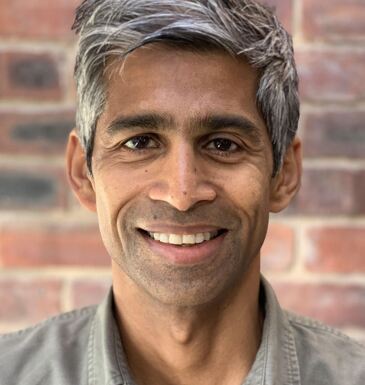- Home
- About Us
- Alumni Members
- Professor Thushan de Silva
Alumni Members
Back
My Spanish teacher was so keen for me to do A-Level Spanish that she wrote a letter to every medical school in the country asking whether they would accept someone with 2 sciences and a language... I am grateful to this day for her dedication in doing this and allowing me to develop myself in a broader way during my A-Levels than I would have done.
Professor Thushan de Silva
Attended 1989 - 1994
I started at KES in 1989, going into Year 9 when I moved to the UK from Sri Lanka. I finished in 1994 after sixth form. I wanted to do Medicine and obviously enjoyed the sciences, but funnily enough before sixth form many subjects I enjoyed the most were those that I had to give up after GCSEs including French, Spanish, Latin, Art and Maths.
What higher education did you complete? Did you go to KES Sixth Form?
Yes I went to KES sixth form. I completed a Medical degree (MBChB) at the University of Bristol, as well as what is called an ‘intercalated’ BSc in Psychology where I spent my 3rd year stepping out of medicine to do this. I’ve done lots of postgraduate medical exams during specialisation, as well as a PhD.
What is your current job title? Can you give a brief description of what is involved in your role?
I am a Professor of Infectious Diseases and Honorary Consultant Physician. I am a Clinician Scientist, which means that I spend part of my time as an NHS doctor looking after patients with infections in hospital, and the other part doing research into how viruses and bacteria make us ill, how our body tries to combat them, and how we can learn from this to make the best use of vaccines to reduce how ill these bugs make us.
It is a real privilege to be able to do scientific research as well as look after patients and I really enjoy the variety my job offers.
How do you feel that your time at KES Academy shaped you and your career? Were there any particular highlights you can recall from your time at KES Academy?
First and foremost, the teachers at KES provided a really supportive environment for me to adapt to a new education system and country when I moved to the UK in my early teens.
While there were lots of good teachers, I have to mention one in particular who ironically didn’t teach me a STEM-based subject. As she knew I was disappointed about dropping languages after GCSE, my Spanish teacher, Jane Braybrook was so keen for me to do A level Spanish that she wrote a letter to every medical school in the country asking whether they would accept someone with 2 sciences and a language. This was in a time when doing 3 sciences was the norm to get into medicine.
I am grateful to this day for her dedication in doing this and allowing me to develop myself in a broader way during my A levels than I would have done.
What was the most important learning point you took with you from your time at KES Academy?
That inspiring and supportive teachers are the real key to instilling a desire to learn.
Did you always know that you wanted to have a career in science? In what ways were you supported at KES Academy to pursue this path?
I knew I wanted to do medicine from an early age. But I didn’t decide I wanted to do scientific research as part of my medical career until my post graduate years and training in infectious diseases.
What is your proudest moment in your career so far?
I was awarded an MBE for services to COVID-19 in 2021. But my pride is really for all the individuals in my team who went above and beyond to deliver all the work we did during the COVID-19 pandemic.
What are your hopes and aspirations for the future?
To continue to gain as much enjoyment as I have done in my work and to contribute to medicine and science as best I can. However, increasingly, my aspirations are pivoting towards mentoring and supporting junior medics and scientists to achieve their own hopes and aspirations, including supporting scientists from low and middle-income countries.
As well as the University of Sheffield, part of my job is at the Medical Research Council Unit The Gambia at LSHTM where some of my research is based.
What would your advice be to young adults looking to pursue a similar career path to yours?
That there is no one size fits all and do not believe anyone who tells you that there is only one path to success and fulfilment in a medical and scientific career. Both can be incredibly varied and full of many opportunities to contribute in different ways.

